Do You Know How Inductors Work?
Inductors, like resistors R and capacitors C, are an important part of passive components that are inevitably used in electronic devices.An inductor is a component in an electrical circuit which stores energy in its magnetic field. It can release this almost instantly. Being able to store and quickly release energy is a very important feature and that’s why we use them in all sorts of circuits. (Sitong Electronic has been established for 20 years and our engineers have 40 years of experience.)
Magnetic effect of electric current and coils
An electric current produces a magnetic field and has a magnetic effect on its surroundings. This is the "magnetic effect of electric current", which was discovered by Oster in 1820. It follows that parallel wires with currents flowing in the same direction attract each other, while parallel wires with currents flowing in the opposite direction repel each other. Moreover, Ampere also made a coil of wire into a cylindrical shape, called it solenoid. This is the originator of the solenoid coil used for antenna coils, etc. At that time, it was also discovered that solenoid coils with flowing currents exhibited the same properties as magnets.
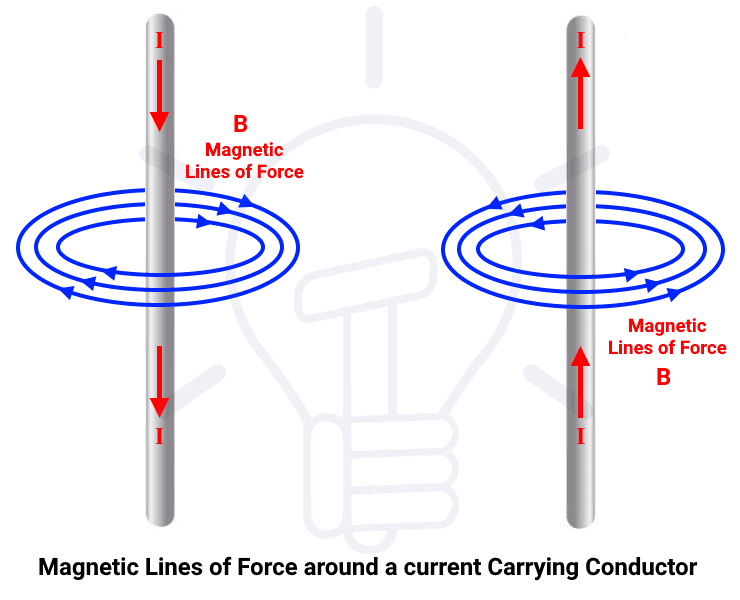
Electromagnetic induction and coil inductance
In contrast to the magnetic effect of current, which produces magnetic lines of force, the phenomenon of "electromagnetic induction", in which changes in magnetic flux produce electric potential, was discovered by Faraday in 1831.
The phenomenon of electromagnetic induction is produced by a single coil. When the current flowing through a coil changes, the resulting magnetic flux also changes, creating an electric potential in the coil. This is called self-inductance. The electric potential (V) is expressed in the following equation, and the proportional constant L is called self-inductance. Usually the inductance of an inductor (coil) is this self-inductance.
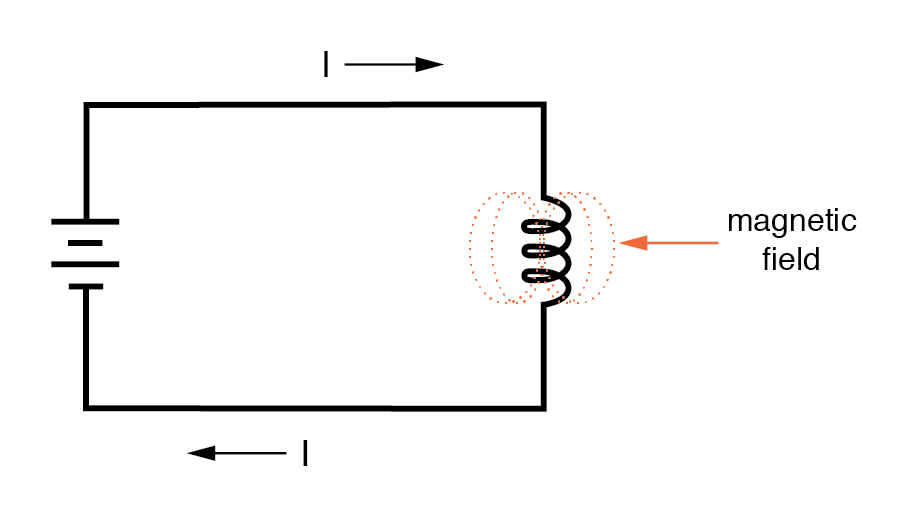
The principle of inductors
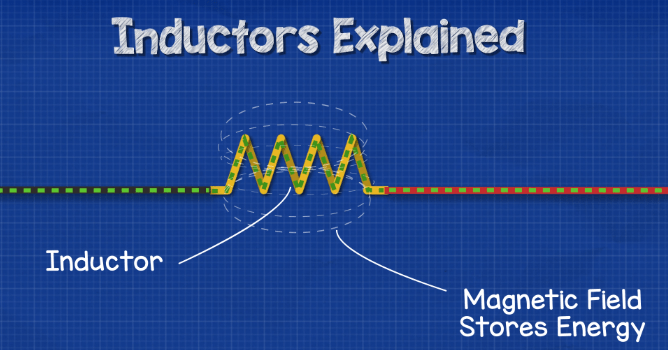
What Do Inductors Look Like?
Basically, just some copper wire wrapped around a cylinder or a ring. We do get other designs which have some casing over, this is usually to shield its magnetic field and prevent this from interfering with other components.
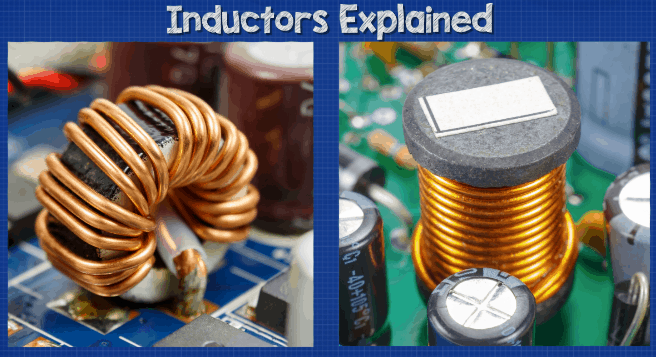
We will see inductors represented on engineering drawings with symbols like these.
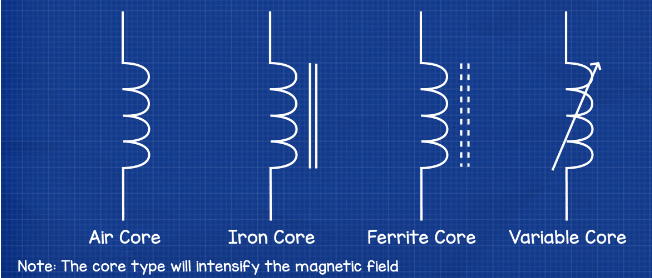
Something to remember is that everything with a coiled wire will act as an inductor that includes motors, transformers and relays.
What Do We Use Inductors For?
We use them in boost converters to increase the DC output voltage while decreasing the current.
We can use them to choke an AC supply and allow only DC to pass.
We use them to filter and separate different frequencies.
We also use them for transformers, motors and relays.
How To Measure Inductance
We measure the inductance of an inductor in the unit of Henry, the larger the number; the higher the inductance. The higher the inductance; the more energy we can store and provide, it will also take longer for the magnetic field to build and the back EMF will take longer to overcome.
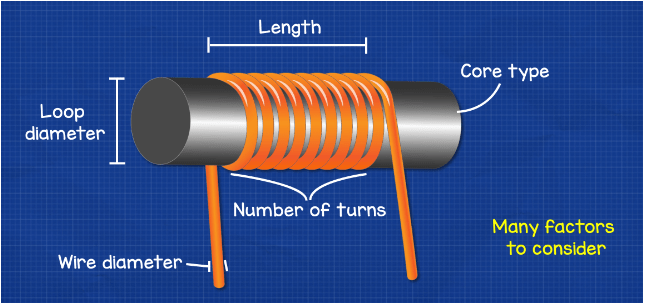
You can’t measure inductance with a standard multimeter although you can get some models with this function built in, but it won’t give the most accurate result, that might be ok for you it depends what you’re using it for. To measure inductance accurately, we need to use an RLC meter. We simply connect the inductor to the unit and it will run a quick test to measure the values.
In a word, when an electric current passes through a wire, a magnetic field in the shape of concentric circles is generated around the wire. If the wire is bent into a "spring shape", the magnetic flux inside the inductor will point in the same direction, thus increasing the flux. By adjusting the number of turns, a magnetic field proportional to the number of turns can be generated. This is the principle of an inductor.
An electric current passing through an inductor will produce a magnetic field, and conversely, a change in magnetic field will produce an electric current.
Want to understand inductors better? Feel it in practice!
Sitong Electronic provides three types of inductors with free samples!
评论
发表评论